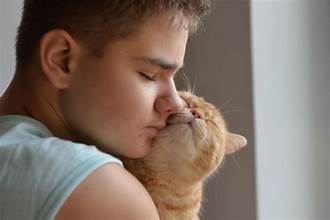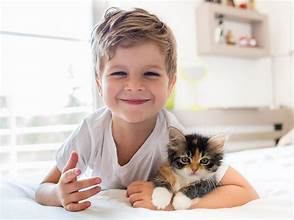Gentle, Loyal, and Calming Companions to Support Your Child’s Emotional Well-Being
For families raising children with special needs, the right dog can provide far more than companionship. A well-matched canine friend can offer comfort during meltdowns, reduce anxiety, and foster trust and social engagement. Not all breeds are created equal when it comes to calm temperaments and nurturing natures.
If you’re considering adding a dog to your family. These five breeds stand out as ideal companions for kids with autism, ADHD, sensory processing disorders, or other developmental challenges.
🦮 1. Golden Retriever
Temperament: Friendly, patient, intuitive
Why a Great Fit:
Golden Retrievers are famously gentle, intelligent, and eager to please. Their predictability and affectionate nature make them excellent emotional support dogs for children with special needs. Goldens are highly trainable and naturally attuned to human emotions. Often responding to a child’s distress with quiet closeness or calm affection.

Bonus: They’re great with routines and love being part of a child’s daily structure. Whether it’s snuggling during reading time or joining in therapy activities.
🐾 2. Labrador Retriever
Temperament: Outgoing, loving, steady
Why a Great Fit:
Labs are one of the most trusted breeds for therapy and service roles—and for good reason. They’re dependable, friendly, and love being with people, especially kids. Labradors tend to be easygoing and adaptable, which makes them a good fit for homes with changing schedules or varying sensory needs.

Bonus: Their playful nature helps build confidence and encourages interactive play, an important milestone for children with social or motor delays.
🐶 3. Cavapoo (Cavalier King Charles Spaniel + Poodle Mix)
Temperament: Sweet, quiet, low-shedding
Why a Great Fit:
Cavapoos combine the affectionate, lap-dog personality of the Cavalier with the intelligence and hypoallergenic qualities of the Poodle. They’re ideal for families in smaller homes or apartments. They are known for being especially gentle with young or sensitive children.

Bonus: Their small size and low reactivity make them wonderful for children who may be fearful of larger dogs.
🐕 4. Bernedoodle (Bernese Mountain Dog + Poodle Mix)
Temperament: Calm, loyal, goofy:
Why a Great Fit:
Bernedoodles are affectionate, loyal, and often develop a deep emotional bond with their humans. They’re excellent at matching their energy to the room and being playful during activity time. Calm when it’s time to decompress. Their intuitive nature helps them respond appropriately to a child’s changing emotional needs.

Bonus: Their poodle side contributes to lower shedding and high trainability, while their Bernese lineage adds loyalty and patience.
🐾 5. Standard Poodle
Temperament: Smart, stable, hypoallergenic
Why a Great Fit:
Often underestimated, Standard Poodles are one of the most intelligent and versatile breeds. They’re loyal, calm, and highly trainable, making them a great fit for service or therapy roles. Their hypoallergenic coats make them an excellent choice for families with allergies. Their gentle demeanor is well-suited for kids who need calm and consistent care.

Bonus: Poodles are incredibly intuitive and responsive, making them ideal companions for emotional regulation and grounding.
🌟 Choosing the Right Match
While breed is an essential factor, personality, training, and lifestyle compatibility are just as critical. A calm rescue dog with a nurturing temperament might be just as suitable as a purebred puppy. Always prioritize:
- Temperament testing
- Slow, supervised introductions
- Guidance from a pediatrician or therapist if needed
We recommend working with a trainer familiar with households that have special needs. To ensure you have a successful transition for both your child and your new canine companion.
💛 Final Thoughts
Dogs can bring more than joy to a home with a child who has special needs child. They can offer peace, stability, and an unwavering source of comfort. The right breed can play a significant role in your child’s emotional growth. Encouraging sensory exploration and providing deep, non-verbal companionship speaks louder than words.
With patience and care, your child’s new furry friend might just become their most trusted ally, bringing joy, comfort, and a sense of security to their life.




